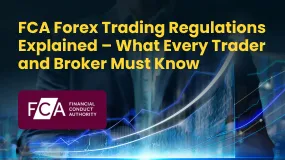简体中文
繁體中文
English
Pусский
日本語
ภาษาไทย
Tiếng Việt
Bahasa Indonesia
Español
हिन्दी
Filippiiniläinen
Français
Deutsch
Português
Türkçe
한국어
العربية
CySEC Comments on Recent Peer Review Made by ESMA
Abstract:The Cyprus Securities and Exchange Commission (CySEC) has issued a statement about the European Securities and Markets Authority (ESMA) recommendations on cross-border activities supervision.

CySEC welcomes the peer review of NCA's supervision of cross-border activities.
ESMA made two recommendations to CySEC under Article 16.
“CySEC welcomes the Peer Review on NCA‘s supervision of cross-border activities of investment firms. CySEC has long observed the shared risks these activities can present and has been at the forefront of developing specific policies and initiatives to ensure that investors across the EU are adequately protected, as well as drive innovation in the sector. However, while the report is extremely valuable and useful, the reviews that form the basis of the Peer Review cover the period August 2018 – August 2020 and therefore do not fully reflect CySEC’s current status or the significant changes that have taken place since then,” the Cypriot authority commented in a statement sent to Finance Magnates.
In the area of cross-border activities, the EU supervisor reviewed the supervision of six National Competent Authorities (NCAs). They are the financial market regulators in the Netherlands, Germany, Czech Republic, Luxembourg, Cyprus, and Malta.
The review covered seven subjects: authorizations, passport notifications, ongoing supervision, daily supervision, investigations and inspections, exchanges and cooperation with NCAs, and enforcement/sanctioning.
Moreover, CySEC, which oversees the financial services companies in Cyprus, was provided with two recommendations by the EU regulator. NCAs are the first to receive ESMAs Article 16 recommendations.
Specific Instructions
CySEC aims to increase the human resources needed to supervise cross-border services provided by Cypriot investment firms. In addition, CySECs supervisory activities, including keeping track of and enforcing compliance measures, should be strengthened, according to the EU regulator.
“Since the review, CySEC has developed additional policies and initiatives to enhance the efficiency and effectiveness of supervision, and taken a bolder approach to tackling serious misconduct. To drive a sustainable culture of compliance, CySEC has significantly expanded its supervisory team, and invested heavily in new technology and data-driven systems that further enhance our ability to supervise the activities of regulated entities,” CySEC said in the statement.
They added: “In addition, CySEC has acquired a specialized system for monitoring supervised entities online marketing activities that is able to identify and analyze relevant material from any source globally including social media channels, news sites, forums, blogs, video sites and ad networks, covering 187 languages. This allows CySEC to identify and address aggressive marketing practices and proactively identify intelligence on incoming/outgoing cross-border activities of firms.”

Disclaimer:
The views in this article only represent the author's personal views, and do not constitute investment advice on this platform. This platform does not guarantee the accuracy, completeness and timeliness of the information in the article, and will not be liable for any loss caused by the use of or reliance on the information in the article.
Read more

Forex Options Trading: The Smart Way to Ease Market Volatility
Want to feel at ease amid forex market volatility? Consider exploring forex options that work as derivatives based on underlying currency pairs. With multiple flexible alternatives, forex options trading is the approach you need to adopt to navigate the seemingly complex forex market. Read this article for more insights.

Forex Hedging Strategies - Calming You Amid Market Chaos
Finding it hard to deal with the forex market volatility? Do those ups and downs in currency pair prices make you more nervous or worried? You need the right forex hedging strategies. As a concept, forex hedging is about strategically opening additional positions to stay immune against adverse forex price movements. It’s about offsetting or balancing your current positions by buying or selling financial instruments. As a trader, your risk exposure is reduced, hence limiting your potential losses.

Understanding Forex Spreads: Types, Calculations & Their Impact on Your Trades
Do you know the reason for a variation in cost when executing a forex trade? Why do costs rise sometimes or remain manageable at other times? It’s due to the difference in forex spreads charged by the broker. So, what is spread in forex? It is simply the difference between the selling and purchase price of a currency pair. The difference, measured in forex pips, is a vital factor impacting trading costs and potential gains.

FCA Forex Trading Regulations Explained – What Every Trader and Broker Must Know
Want to begin your forex journey as a broker or trader in the UK? Start understanding the forex trading regulations applicable in the country. The regulations, imposed by the Financial Conduct Authority (FCA), are designed to enhance investor protection, operational transparency, and a robust UK forex trading market. Check out more about this.
WikiFX Broker
Latest News
Forex Hedging Strategies - Calming You Amid Market Chaos
LSEG Announces £1 Billion Share Buyback Program
Ultima Markets enters the UK and gains the FCA license
SEC Lawsuit Targets Real Estate Fraud Scheme by Joseph Nantomah
A Beginner’s Guide to Trading Forex During News Releases
What Is Forex Currency Trading? Explained Simply
Key Events This Week: ISM, Trade Balance And More Earnings
ASIC Regulated Forex Brokers: Why Licensing Still Matters in 2025
XS.com Broker Partnership Expands Liquidity with Centroid Integration
EC Markets: A Closer Look at Its Licenses
Currency Calculator


